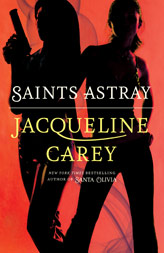Following in the line of writers who are giving encouragement to the millions who are taking part in National Novel Writing Month, I would like to throw my encouragement at you. I understand the rigors of life are time consuming, even on the best days, but the greater the challenge the sweeter the reward, right? Take a moment to envision this: You’ve given up time to play the new epic video games that were released this month. You’ve ignored the new Brandon Sanderson novel that everyone is raving about. You woke up early on thanksgiving to write before succumbing to the food induced coma. You apologized profusely to friends and family for ignoring or flat out hiding from them. But the end is near. On that last day, you find a secluded place and write. You’re focused on the scene, not even looking at the word count. All the hints and threads you wove throughout the book are coming together to form an awesome conclusion. The battle rages and the protagonist, against all odds, succeeds! You look at your word count and, like a second victory, it’s over 50,000 words! Success is yours!
It may seem far away, but it’s within your grasp. The friends and family you abandoned will welcome you back and will be proud of you. Most will probably be jealous at your ability to do something so amazing as writing your own novel. It doesn’t have to be good, it doesn’t even have to be coherent, it just has to be 50,000 words. Simple as that. Once you reach that goal, the rest will be easy. It’s the proof that you have it within you to write. Afterwards you can edit or even start on your next project. You’ll be able to take your time and make a masterpiece.
For those of you who are finding they’re behind, look at this as an opportunity. I’ve talked to people who went on mad rushes to finish before the deadline. They start writing down anything that comes into their mind. Random scenes. Conversations that they’re half hearing around them. Anything at all. In these moments, they seem to tap into their inner muse and pure magic flows out of them. I’ve heard a few say that during the last mad rush, some of the scenes they wrote became their favorite pieces they’ve ever written. A couple say that the scenes written during that last week were what made their novel great.
Just remember that you have it within you to be great! Just being one of our readers guarantees that. 🙂
Best of luck and I’ll see you at the finish line!


